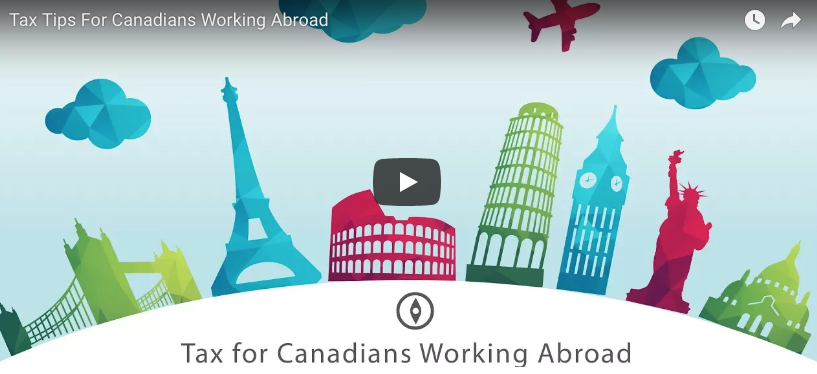Tax Tips for Canadians Working Abroad Watch Video
Allan Madan, CPA, CA

If you are a Canadian who is working either permanently or temporarily abroad Read More…
Disclaimer
The information provided on this page is intended to provide general information. The information does not take into account your personal situation and is not intended to be used without consultation from accounting and financial professionals. Allan Madan and Madan Chartered Accountant will not be held liable for any problems that arise from the usage of the information provided on this page.




Hello
I am Canadian just started work outside Canada,i have a house in Canada and my children and wife are still there.
i wonder if there is any lawyers or accountants abroad that can help in this matter,
Thanks
Hi Firas, can you please email further details of your situation to me? My email address is amadan@madanca.com.
Hi Madan
If a Canadian Resident with ties in Canada works outside (US or middle east), and keeps travelling back to Canada to his family, reports world income on his Canadian tax return, can he also claim travel expenses under employment expense or somewhere on his Canadian Tax return?
Brij
Hi Brij, in this case, travel expenses would be non-deductible. Travel expenses can be deducted if you are not reimbursed by your employer and you are travelling to meet with a client, colleague or supplier.
Hi I will permanently leave Canada soon, but my child will stay in Canada to finish his university education. Will I still be considered a resident as dependent is in Canada? Thanks
Hi Eric, if you are financially supporting your adult child while he stays in Canada, then your adult child will be treated as your dependent. If you have a dependent in Canada, then you are classified as a tax resident of Canada. However, you should check the tax treaty between Canada and your new home country to see if you can get-out of being a Canadian tax resident.
Hi Madan; you mentioned children, would that include adult children over 18 years old?
Thanks,
Alen
Hi Alen,
If you have adult children (18 or older) who are living in Canada, and you are financially supporting them, then they will be considered as your dependents. As a result, you will have a primary tie to Canada and you will be taxable in Canada on your worldwide income.
Hello, I will be leaving Ontario to teach in Egypt this September and I was wondering about the GST and Trilium tax credits I just received. I read below from the CRA website for factual residents:
As a factual resident, your income is taxed as if you never left Canada. As such, you will continue to:
report all income you receive from sources inside and outside Canada for the year and claim all deductions that apply to you
claim all federal and provincial or territorial non-refundable tax credits that apply to you
pay federal tax and provincial or territorial tax for the province or territory where you keep residential ties
claim any federal and provincial or territorial refundable tax credits that apply to you
be eligible for the GST/HST credit (goods and services tax/harmonized sales tax), and Canada child benefit
It says I am eligible for the GST/HST credit, but the video above said that I have to notify the CRA to stop the GST credits when I leave. Just looking for clarification on this. Thank you.
Hi Art,
If you remain a factual resident of Canada because of your strong primary and secondary ties to Canada, then you will be eligible to apply for the GST/HST credit. Non-residents of Canada are not able to collect the GST/HST credit.
Hi. I have a home in Canada which my mother lives in. I do not receive rent for my home. The home is under both my brothers and my name (he is the primary). I also have bank accounts, drivers license, credit cards and I pay insurance for my home and car. I have been working in China for 8 years and will continue for another year. I am currently in Canada due to covid 19 and have been here for 5 months until the border opens up again. My family come with me to China while I am there. Would this make me a factual resident or non resident? Do I need to file my world income each year? I haven’t been for 8 years. Also if I work full time here until I go back (summer job) do I have to file my world income or just my Canadian income for the work I did? Any information you can provide will be appreciated.
Hi Johnny,
According to the tax treaty between Canada and China, you are a resident of the country where your permanent home is located. It appears that you have a permanent home in both China and Canada. If you have a home in both Canada and China, then you are a resident of the country where your personal and economic ties are strongest. You have several ties to Canada, but I suspect that your ties to China would be stronger since you have been living in China for 8 years and are temporarily living in Canada due to Covid-19. However, if your personal and economic ties to both countries are equal, then you are a resident of the country where you ordinarily live. It appears that you ordinarily live in China, which would make you a tax resident of China and a non-resident of Canada.